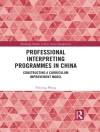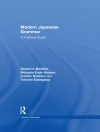This monograph examines how higher education(HE) institutions construct ‘professional identities’ in the classroom, specifically how dominant discourses in institutions frame the social role, requisite skills and character required to practice a profession, and how students navigate these along their academic trajectories. This book is based on a longitudinal case study of a prestigious HE institution specialising in training professional interpreters.
Adopting an innovative research approach, it investigates a community of aspiring professionals in a HE context by drawing on small story narrative analysis from an ethnographic perspective to provide emic insights into the student community and the development of their social identities. The findings (contextualised by examining the curricula of similar institutions worldwide) suggest that interpreter institutions might not be providing students with a clear and comprehensive picture of the interpreterprofession, and not responding to its increasingly complex role in today’s society.
สารบัญ
Researching HE Institutions for Professional Training.- The History of Interpreting as a Profession.- Narrative Research and Ethnography.- Carrying out Research in the Field.- Principal Themes.- Data Analysis: Teacher Talk about Interpreting.- Data Analysis: Language Levels and Interpreting.- Data Analysis: Students and the Institution.- A Summary of the Principal Findings.- Improving and Extending Research in the Field.
เกี่ยวกับผู้แต่ง
Dr. Alan James Runcieman is currently an adjunct professor at the Department for Interpreters and Translators, University of Bologna, Italy. His principle research interests lie in the fields of narrative research, ethnography, interpreter training, intercultural communication, phonetics and phonology and World Englishes.












